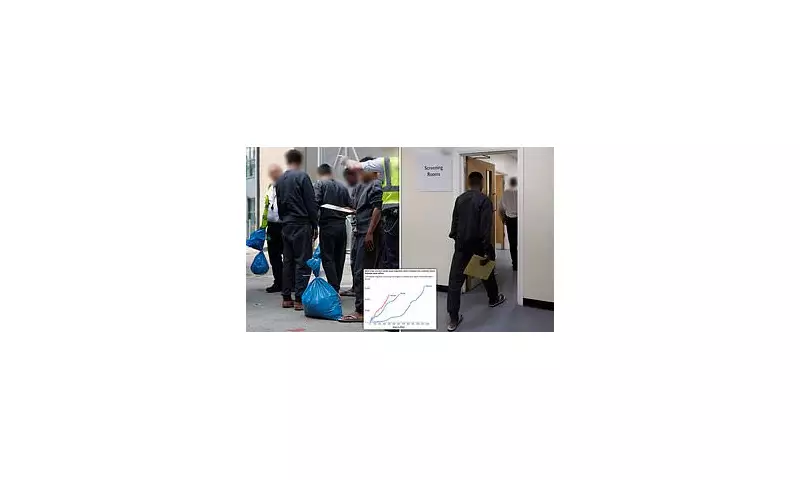
In a decisive move that signals a major shift in Labour's approach to immigration, Sir Keir Starmer has declared that anyone entering the country illegally will face detention and removal. This firm stance comes amid a significant surge in Channel crossings, with more than 650 migrants arriving on UK shores on Bank Holiday Monday alone.
The Labour leader's comments, made during a detailed interview, mark a clear departure from previous party rhetoric and place a strong emphasis on border security and the integrity of the asylum system. "If you come here illegally," Starmer asserted, "you will be detained and you will be returned."
A Surge in Crossings Prompts Firm Response
The timing of Starmer's statement is critical. The UK has witnessed a consistent flow of small boats making the perilous journey across the English Channel. The Bank Holiday weekend saw a particularly high number of arrivals, putting the issue of illegal migration firmly back in the national spotlight and intensifying pressure on the government.
This new, robust position from the Opposition Leader is seen by many as an attempt to reclaim the narrative on national security and immigration from the Conservatives, an area where Labour has traditionally been perceived as weaker.
Detention and Returns: The Proposed Framework
While outlining his principle of "detain and return," Starmer provided a framework for a potential Labour government's policy. The approach is built on two key pillars:
- Swift Processing: Expediting asylum claims to quickly identify those with a legitimate right to remain.
- Enforced Removals: Ensuring those who do not have a legal claim are promptly returned to their country of origin or a safe third country.
This policy aims to dismantle the business model of human trafficking gangs who profit from facilitating these dangerous crossings by demonstrating that illegal entry does not lead to settlement in the UK.
Political Repercussions and the Road Ahead
Starmer's hardline comments are likely to cause debate within his own party, which contains factions more sympathetic to open borders. However, it reflects a broader strategic calculation to appeal to centrist and conservative-leaning voters who prioritise controlled immigration.
The government is expected to face renewed questions about its own handling of the migrant crisis, particularly the efficacy and cost of its Rwanda deportation scheme. As both major parties now advocate for strong measures to stop the boats, the political battle will likely focus on competence and delivery rather than principle.





